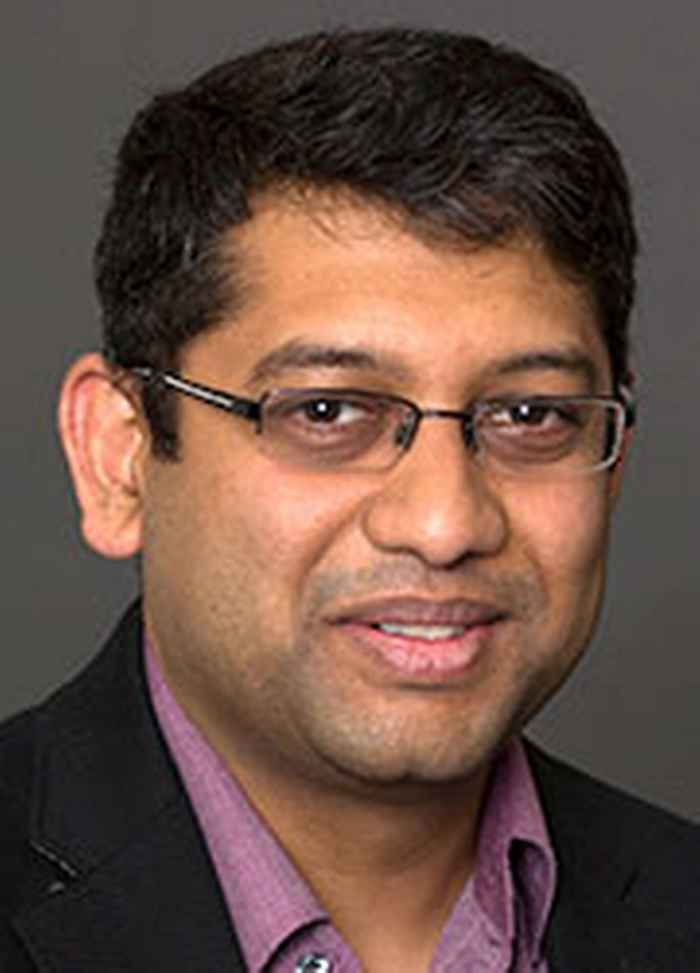Breaking Barriers: An Applied Probabilist's Experience at the Institute for Advanced Study
Blog by Alumni Fellow Harsha Honnappa
10 September 2024
Michel and I planned to explore problems at the intersection of statistical inference, control/decision-making and stochastic processes. These foundational topics individually underlie many of the problem domains that the various groups within IAS tackle. In particular, I thoroughly enjoyed engaging with the Dutch Institute for Emergent Phenomena (DIEP) community, through their Thursday seminar series and lunches. At the invitation of Wout Merbis and Fernando Santos, I also had the privilege of giving a talk in the DIEP seminar on my on-going research on the theoretical foundations of reinforcement learning for continuous-time, stochastic dynamical systems.
Michel and I identified multiple potential projects to work on, and I am very glad that we have made significant progress on two of them. These problems were motivated in part by my interests in developing stochastic models of the low-earth orbit (LEO) environment. LEO is perhaps the most valuable “real estate” in the space environment, but it is imperiled by a potential tragedy-of-the-commons failure. From an engineering and space policy perspective, stochastic models are necessary to understand the “carrying capacity” of LEO and to optimally control access and fairly allocate the resource.
Our first project has made progress on statistical estimation of stochastic models of so-called discrete-event stochastic systems, of which LEO is an example. Second, we have made significant progress in developing novel simulation-based and reinforcement learning methods for discovering optimal “impulse” or discontinuous control policies, which can be used to regulate access to LEO. The methodological developments in this work lie outside the state-of-art methods in reinforcement learning, where the focus is entirely on controls that are continuous in nature. We expect to submit these papers in the near future.

My interactions with a broad cross-section of the IAS community also led to an introspection on the organization of interdisciplinary research, allowing me to question many of my preconceptions. The National Academies of Science, Engineering and Medicine in the United States define [1] interdisciplinary research as “a mode of research by teams or individuals that integrates … two or more disciplines…to advance fundamental understanding or to solve problems whose solutions are beyond the scope of a single discipline or area of research practice.”
Over the course of my career at Purdue I have established on-going research relationships with colleagues in mathematics, statistics, business/management and other engineering disciplines. These research relationships are largely technical in nature and resonate strongly with my own expertise as an Applied Probabilist. In the semester preceding my visit to IAS, I had tried to organize a team of engineers, mathematicians, biologists and veterinarians, to apply for a large U.S. National Science Foundation grant studying pandemic preparation. This effort failed, but an important takeaway for me was the need to establish a common language and motivation for a diverse team of researchers to work together. My time at IAS reminds me that while academic research is sui generis — a solitary endeavor that makes progress through consensus — a place like IAS is necessary to help break down barriers and forge new connections.
Finally, I would like to congratulate Huub Dijstelbloem, and Julia Hoffmann and her staff (Iris, Edwina and Jayshri), for creating a most welcoming space for deep thinking and research. I would like to offer a special thanks to Julia and her team for arranging a long-term visitor permit, that allowed my wife and I the opportunity to experience life (with a bicycle) in Amsterdam. As residents of the American Midwest and natives of urban India, this was a dream come true! The beautiful old Amsterdam building, with its warren-like maze within to get from room to meeting room, is something I remember with fondness.
The environment at IAS is wonderfully collegial, and for anyone interested in interdisciplinary research this is a place that you will encounter researchers far outside your own domain of interest, offering many, many opportunities to learn. I look forward to a continuing relationship with IAS.
References
- National Academies of Sciences, Engineering, and Medicine. 2005. Facilitating Interdisciplinary Research. Washington, DC: The National Academies Press. https://doi.org/10.17226/11153.